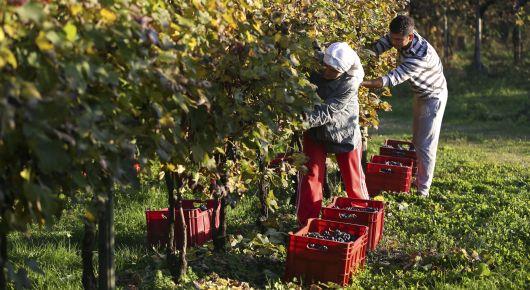FAO helps address the rural dimension of migration

Border entry restrictions and lockdown measures, following the onset of the COVID-19 pandemic, have affected seasonal and circular migration, as well as food security in many countries across Europe and Central Asia. To this end, FAO has organized a webinar dedicated to practical solutions for mitigating COVID-19 impacts and associated challenges, and to providing a platform for sharing information on seasonal and circular migration.
“FAO is best placed to support countries in addressing the rural dimensions of migration, its implications for vulnerable rural populations, and its impact on the future of agriculture and food systems,” said Raimund Jehle, FAO Regional Programme Leader.
Seasonal migration is the process when people migrate for employment, based on seasonality for only part of the year, following the agricultural seasonal calendar. Circular migration happens when an individual moves repeatedly between countries or areas, be it temporary or long-term.
As the pandemic’s consequences slowed down the harvest in some parts of the world, many seasonal workers remained without livelihoods, and there were constraints on transporting food to markets.
“Together with its partners, FAO is expanding on its work to strengthen the positive contribution that migrants are making in poverty reduction, improved food security, and nutrition, and the resilience of rural households,” Jehle added.
The full webinar, part of a series of regional COVID-19 webinars, is available on YouTube.
30 September 2020, Budapest, Hungary
